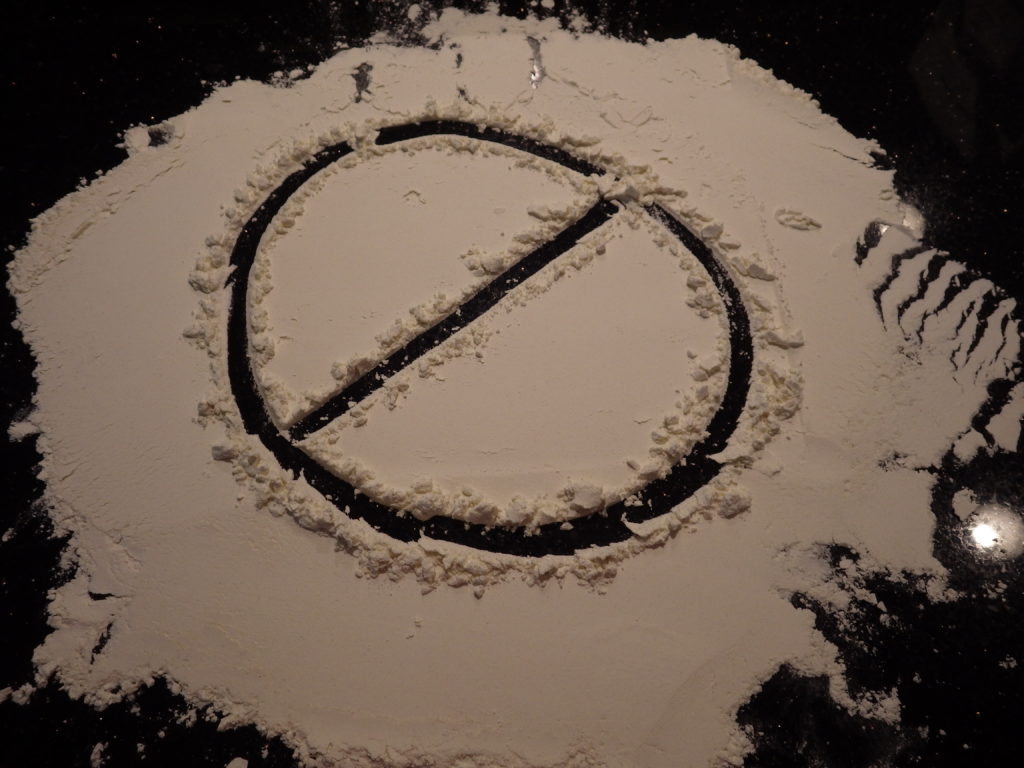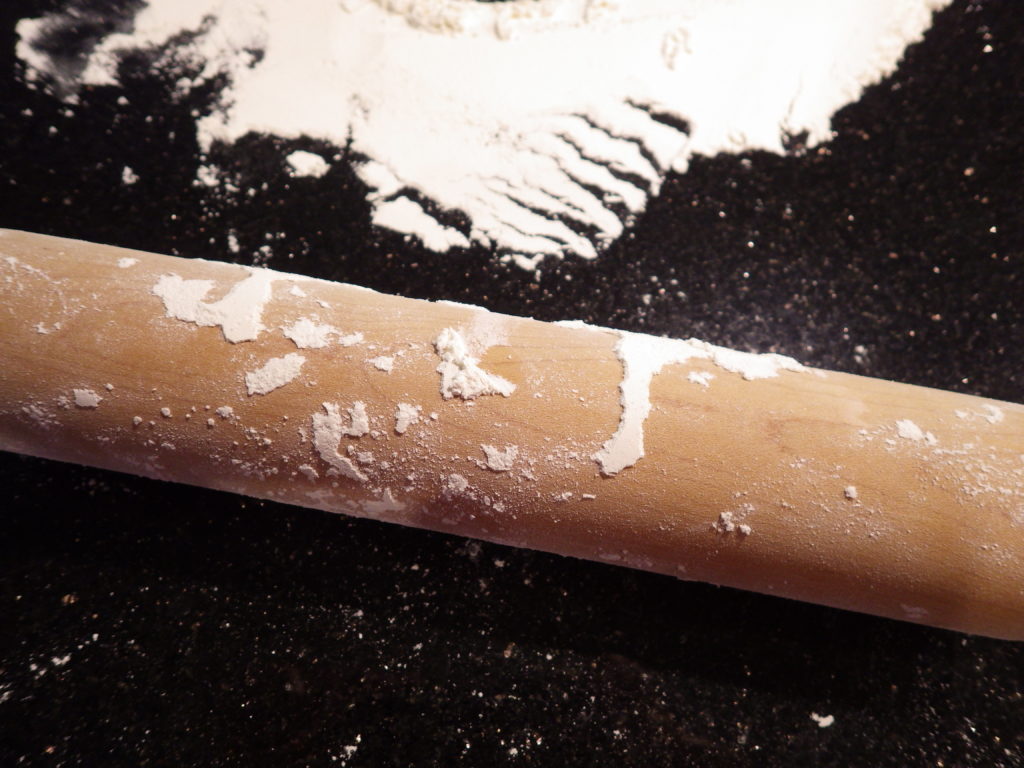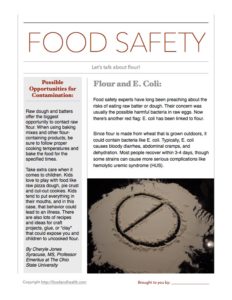Food safety experts have been preaching for years about the potential risk of licking the beaters or eating raw cookie dough. Their concern was the possibility of consuming harmful bacteria in raw eggs.
Now there’s another “red flag” related to raw batter and dough.
E. coli has been linked to flour.
We don’t usually think of flour as a “risky” food and it’s rare for someone to get sick from flour, but there is a chance and it has happened. Since flour is made from wheat that is obviously grown outdoors, it does have the potential to contain bacteria. A foodborne illness from flour usually doesn’t happen because flour is primarily used in foods that are cooked and bacteria are destroyed by heat.
The concern about the flour in raw cookie dough is a deadly bacteria called E. coli.
Typically, E. coli causes bloody diarrhea, abdominal cramps, and dehydration. Most people recover within 3-4 days. While even that can be a long time when you’re the person who is sick, some strains of E.coli can be much more severe, resulting in a type of kidney failure called hemolytic uremic syndrome (HUS). Seniors, young children, pregnant women, and people with compromised immune systems are the most susceptible to any foodborne illness.
So, how do people get sick from eating flour? Raw dough and batters are the biggest opportunity. When using baking mixes and other flour-containing products, be sure to follow proper cooking temperatures and bake the food for the specified times.
When else might you run across an uncooked or undercooked raw flour product?
Think about other uses for flour such as thickening sauces—make sure you heat these foods completely.
Take extra care when it comes to children. Kids love to play with food like raw pizza dough, pie crust and cut-out cookies. Kids tend to put everything in their mouths, and in this case, that behavior could lead to an illness. There are also lots of recipes and ideas for craft projects, glue, or “clay” that could expose you and children to uncooked flour.
Cross contamination is also a possible problem. Flour dust spreads easily. Do you empty and completely clean the flour container when you buy new flour? Do you always wash your hands and work surfaces and utensils after handling flour?
I know I’m being a “spoilsport” and this is not something most of us usually think about… but maybe we should.
By Cheryle Jones Syracuse, MS, Professor Emeritus at The Ohio State University
Here’s a free printable food safety handout that outlines the highlights of this post!
And here are a few of the newest resources to hit the Nutrition Education Store!





